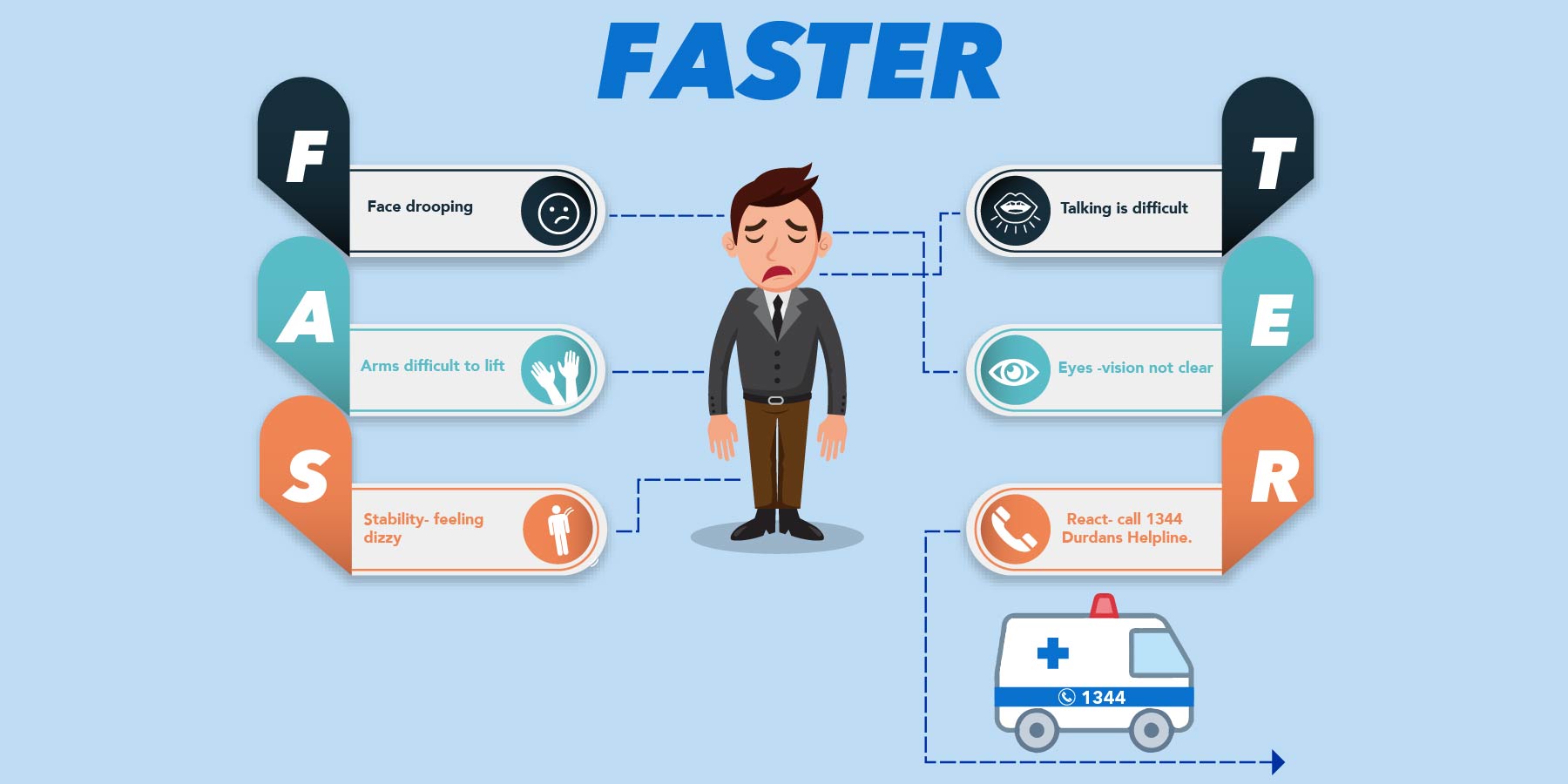Stroke is one of the leading causes of death worldwide and cause more serious long-term disabilities than any other disease.Stroke obviously represents a serious physical and economic burden to the patient, caregiver, and society as a whole.
A stroke or “brain attack” occurs when blood flow and oxygen are not adequately perfusing the brain. There are two types of stroke. An ischemic stroke occurs when arteries are blocked by blood clots or by the gradual build-up of plaque. Majority of the strokes are ischemic. .A hemorrhagic stroke occurs when a blood vessel in the brain breaks leaking blood into the brain. When either of these things happen, brain cells begin to die and brain damage occurs. When brain cells die during a stroke, abilities controlled by that area of the brain are lost. These abilities include speech, movement and memory. How a stroke patient is affected depends on where the stroke occurs in the brain and how much the brain is damaged.
Timely recognition and treatment of stroke leads to improved patient outcomes. Approximately two million brain cells die every minute during a stroke, increasing risk of permanent brain damage, disability or death.Thus, recognizing symptoms and acting quickly to get medical attention can save lives and limit disabilities.
Stroke can affect anyone; male or female, of any race. It is important to know the signs and symptoms of stroke so medical attention and treatment can be given as soon as possible. Some of the common symptoms of stroke include:
- Sudden numbness or weakness of the face, arm or leg – especially on one side of the body
- Sudden confusion, trouble speaking or understanding
- Sudden trouble seeing in one or both eyes
- Sudden trouble walking, dizziness, loss of balance or coordination
- Sudden severe headache with no known cause
It is extremely important for anyone experiencing any of these symptoms to seek medical attention immediately. Durdans Hospital provides high priority ambulance service with well-trained medical staff, who send stroke alert to the emergency department about incoming acute stroke patient, which helps to reduce the delay in admission and improve acute stroke management. Our accident and emergency department is staffed with highly trained emergency doctors, on call emergency physicians, and neurologists to provide 24/7 emergency care for acute stroke patients.
On arrival, our emergency team evaluate the type of the stroke and if the patient is a candidate for clot busting drug, an injection of tissue plasminogen activator (tPA) also called Alteplase, which is the gold standard treatment for acute ischemic stroke, is given within 3 hours.But in some instances, tPA can be given up to 4.5 hours after the stroke symptoms begin.This drug restore the blood flow by dissolving the clot causing the stroke.
In special circumstances, endovascular treatment can be performed, in which procedures are performed directly inside the blocked vessel to dissolve or remove the clot.Durdans stroke center is equipped with most advanced biplane system which plays a major role in the endovascular management of acute stroke.
We also focus on helping patients recover as much function as possible and independent living through our well established stroke rehabilitation program.
Call us on 1344 or (011)214 0000 for any stroke emergencies
Dr Gokulakumar Ramanathan
Senior Medical Officer In Charge













